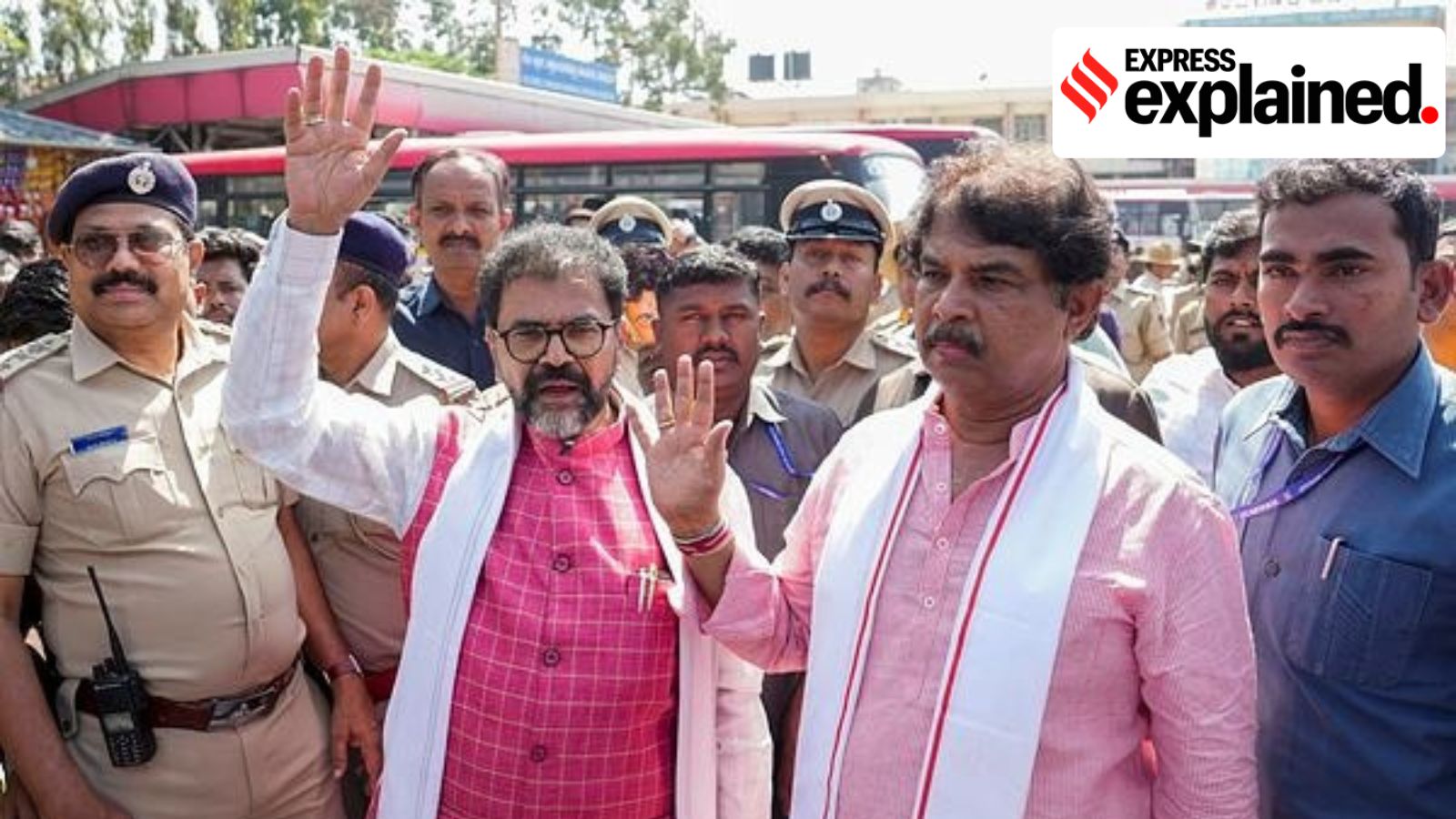The BJP in Karnataka on Friday (January 3) protested the state government’s decision to increase bus fares by 15%, decrying the move as a “New Year gift” to commuters.
Leader of Opposition in the Karnataka Assembly and former transport minister R Ashok and other BJP leaders distributed roses to bus passengers at the Kempegowda Bus Station seeking “an apology on behalf of” Chief Minister Siddaramaiah for the price hike.

The ruling Congress government on Thursday (January 2) approved a cabinet decision to hike the ticket fares of state-run buses from January 5.
Transport Minister Ramalinga Reddy said the decision was necessitated by the rising expenditure on fuel, staff and other operational costs, following the introduction of the Shakti scheme in June 2023. The BJP has long criticised the scheme, which offers free bus travel for women.
Firstly, what is Karnataka’s Shakti Scheme?
The Shakti scheme is one of the five poll guarantees Congress had promised in the run-up to the 2023 assembly elections. The state has four road transport corporations (RTCs): Karnataka State Road Transport Corporation (KSRTC), Bengaluru Metropolitan Transport Corporation (BMTC), Kalyan Karnataka Road Transport Corporation (KKRTC) and North Western Karnataka Road Transport Corporation (NWKRTC).
Under the scheme, the RTCs issue “zero-sum tickets” to women travelling in government buses. The respective corporation then calculates the ticket value of the total distance travelled by the woman and submits the claim to the government for reimbursement.
How has the Shakti scheme impacted the operations of the RTCs?
The state government’s flagship scheme was launched on June 11, 2023. By January 2, 2025, an estimated 363 crore women passengers have benefitted from the scheme. Additionally, the daily passenger count has surged by 25% across all RTCs post-Shakti scheme. While the daily passenger count was 93 lakh before the Shakti scheme, the number has surged to 1 crore post the free bus scheme for women.
Story continues below this ad
To cater to the growing demand, the transport department has inducted 4,304 buses for the years 2023-24 and 2024-25. BMTC got the highest share of 1510 buses followed by KSRTC (1118), KKRTC (1014) and NWKRTC (662). However, the department is in the process of inducting an additional 1346 buses for all the RTCs. KSRTC is operating an additional 4,828 schedules daily post the scheme, while BMTC is operating an additional 5,808 schedules daily, leading to a surge in fuel consumption.
According to Reddy, the finance department reimbursed Rs 6,543 crore for the Shakti scheme between June 2023 and November 2024, while the RTCs still face a deficit of Rs 1694 crore. Additionally, the RTCs also sought financial aid from the government to clear PF (Provident Fund) dues amounting to Rs 2792 crore, including interest on delayed payments.
So why the hike in bus fares?
Transport Minister Ramalinga Reddy explained that the price hike was necessitated by the rising expenditure on fuel, staff and other operational costs given the growing demand for bus travel following the Shakti scheme.
He added that ticket fares have not been revised for the last five years in some transport corporations, such as BMTC, where there has been no fare increase since 2014.
Story continues below this ad
“The daily diesel cost in 2020 was Rs 9.16 crore which has now surged to Rs 13.12 crore in just four years. A 15% wage revision between 2020-23 has significantly increased daily staff costs. The average daily staff cost in 2020 was Rs 12.85 and has now increased to Rs 18.36 crore. With rising costs and accumulated dues, the price hike was essential,” said Reddy.
He also said that while the BJP government had provided a grant to cover net salaries, the difference between gross and net salaries remained unpaid, leading to an accumulated burden of Rs 5900 crore at the end of their term.
And what has the BJP alleged?
R Ashok has alleged that the Congress-led government had incurred financial liabilities due to misgovernance, and was hiking the prices of commodities and services to cover the loss.
He said, “Current (electricity) charge, guidance value on houses, water tariff, milk and prices of other commodities have increased. As a New Year Gift, the bus price has also increased.”
Story continues below this ad
Ashok said, “In the last 10 years, price hikes have happened for some RTCs. During this period, TA/DA, fuel costs have increased, but there was no hike in the ticket price. When I completed my tenure as transport minister in 2013, BMTC and KSRTC had a profit of Rs 1000 crore.”
Transport Minister Ramalinga Reddy on Thursday (January 2) said that the fare hikes were inevitable given the growing operational expenses daily across the road transport corporations.







































